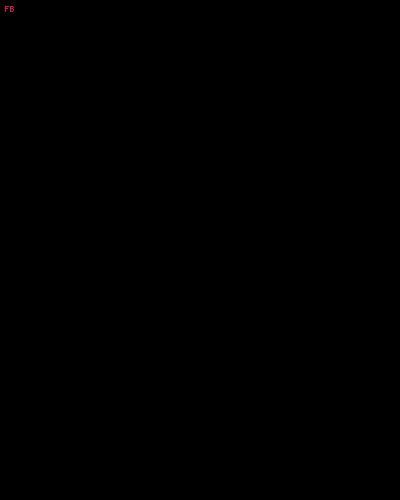.jpg)
LA BELLE ET LA BÊTE
(La bella e la bestia, Francia/1946) R.: Jean Cocteau. D.: 94’
Introduce Serge Toubiana (Cinémathèque française)
T.it.: La bella e la bestia. T. int .: Beauty and the Beast. Sog.: dal racconto omonimo di Jeanne-Marie Leprince de Beaumont. Scen., Dial.: Jean Cocteau. F.: Henri Alekan. M.: Claude Ibéria. Scgf.: Christian Bérard. Mus.: Georges Auric. Su.: Jacques Carrère, Jacques Lebreton. Int.: Jean Marais (Avenant/La Bestia/Il principe), Josette Day (Belle), Mila Parély (Félicie), Nane Germon (Adélaïde), Marcel André (padre di Belle), Michel Auclair (Ludovic), Jean Cocteau (narratore). Prod.: André Paulvé per Discina. Pri. pro .: 29 ottobre 1946 DCP. D.: 94’ . Bn . Versione francese con sottotitoli inglesi / French version with English subtitles
Da: Cinémathèque française
Restaurato da SNC – Groupe M6 e La Cinémathèque française, con il sostegno del Fonds Culturel Franco Américain – DGA MPAA SACEM WGAW / Restored by SNC – Groupe M6 and La Cinémathèque française, with the support of Fonds Culturel Franco Américain – DGA MPAA SACEM WGAW
Si è fatto ricorso alle note e alle copie di riferimento stabilite da Henri Alekan durante il restauro del 1995. Il diario tenuto da Cocteau durante le riprese del film (La Belle et la Bête, Journal d’un Film) ha ugualmente fornito preziose indicazioni riguardo alla tonalità e alla qualità visiva desiderate dall’autore-regista. Tutti conoscono il racconto di Madame Leprince de Beaumont, un racconto spessoattribuito a Perrault perché si trova vicino a Peau d’Ane sotto la prestigiosa copertina della Bibliothèque Rose. Il postulato del racconto richiede la fede e la buona fede dell’infanzia. Voglio dire che bisogna crederci in partenza e ammettere che cogliere una rosa possa trascinare una famiglia nell’avventura, che un uomo possa essere trasformato in una bestia e viceversa. Simili enigmi indispongono gli adulti facili ai pregiudizi, fieri dei loro dubbi, armati di derisione. Ma ho la tracotanza di credere che il cinema che mostra l’impossibile possa azzardare di imporlo, in qualche modo, e di mettere un caso singolare al plurale. Spetta a noi (cioè a me e ai miei collaboratori, che siamo una sola cosa) evitare quelle inverosimiglianze che disturbano ancor più nell’inverosimile che nella realtà. Non si può portare in primo piano ciò che è distante, o rendere in maniera sfocata ciò che è vicino. Perché il mistero possiede le sue leggi, che sono simili a quelle della prospettiva. Le linee di fuga sono così impeccabili e l’orchestrazione così delicata che la minima nota falsa stonerebbe. Non dico ciò che ho fatto ma quello che conto di fare, per quanto possibile. Il mio metodo è semplice: non ricercare la poesia. Essa deve venire da sé. Il solo udire il proprio nome sussurrato la spaventa. Cercherò di costruire un tavolo. Starà a voi mangiarvi, esaminarlo o farne legna da ardere.
Jean Cocteau, Beauty and the Beast. Diary of a Film, Dove Publications, New York 1972
The notes and reference copies made by Henri Alekan during the 1995 restoration have been used. The diary kept by Cocteau during filming (La Belle et la Bête, Journal d’un Film) has also provided the precious indications regarding tone and visual quality that the director wanted. Everybody knows the story by Madame Leprince de Beaumont, a story often attributed to Perrault, because it is found next to Peau d’Ane between those bewitching covers of the Bibliothèque Rose. The postulate of the story requires faith, the faith of childhood. I mean that one must believe implicitly at the very beginning and not question the possibility that the mere picking of a rose might lead afamily into adventure, or that a man can be changed into a beast, and vice versa. Such enigmas offend grown-ups who are readily prejudiced, proud of their doubt, armed with derision. But I have the impudence to believe that the cinema which depicts the impossible is apt to carry conviction, in a way, and may be able to put a ‘singular’ occurrence into the plural. It is up to us (that is, to me and my unit in fact, one entity) to avoid those impossibilities which are even more of a jolt in the midst of the improbable than in the midst of reality. For fantasy has its own laws which are like those of perspective. You may not bring what is distant into the foreground, or render fuzzily what is near. The vanishing lines are impeccable and the orchestration so delicate that the slightest false note jars. I am not speaking of what I have achieved, but of what I shall attempt within the means at my disposal. My method is simple: not to aim at poetry. That must come on its own accord. The mere whispered mention of its name frightens it away. I shall try to build a table. It will be up to you then to eat at it, to examine it or to chop it for the firewood.
Jean Cocteau, Beauty and the Beast. Diary of a Film, Dove Publications, New York 1972

Tariffe:
Aria condizionata
Accesso disabili
Tel. 051 522285











